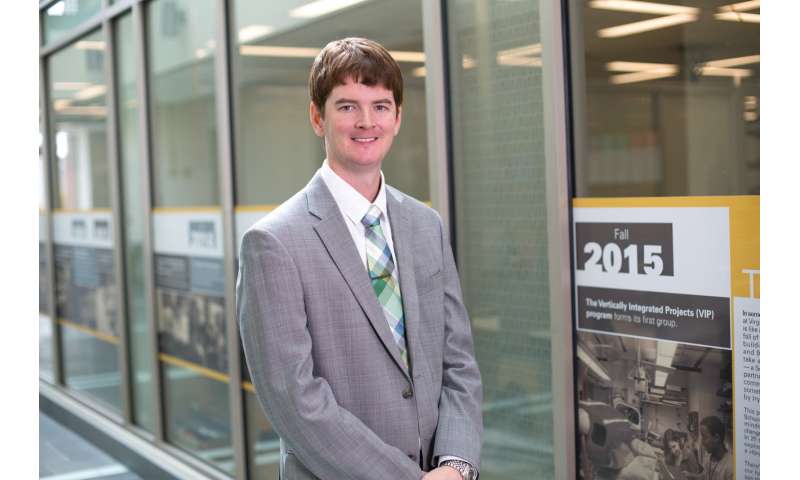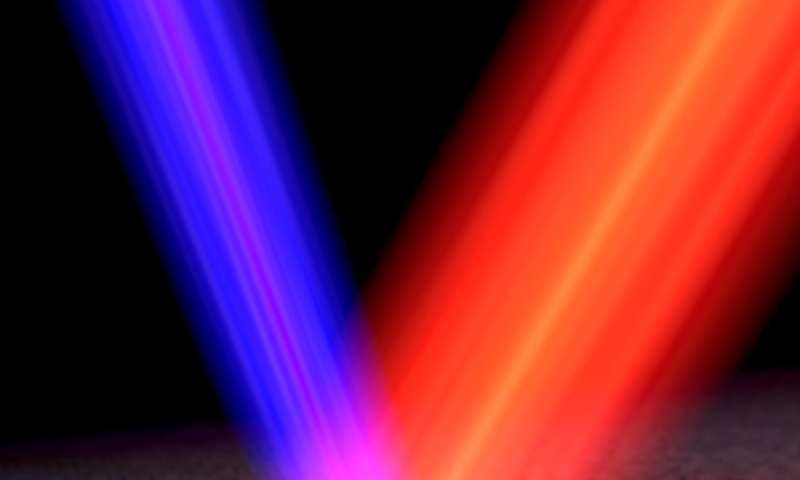VCU Engineering Researcher Receives Air Force Research Award to Study How Light Interacts with — and Changes — Materials

Lasers, Blu-ray players and Google cars are just a few of the technologies that operate using light waves. Specialty materials with enhanced optical properties can streamline the design of these and other devices and make them work more efficiently. With an Air Force Office of Scientific Research (AFOSR) grant, Nathaniel Kinsey, Ph.D., assistant professor in the Department of Electrical and Computer Engineering at the VCU School of Engineering, is conducting research to develop optically enhanced materials.
Kinsey is using his award to study how intense light interacts with matter, a discipline called nonlinear optics. The optical response of a material usually scales linearly with the amplitude of the electric field—in Kinsey's research, the light—that is applied to it. At high intensities of light, the material properties can change rapidly and lead to interesting and useful nonlinear effects. These effects, however, are generally weak.
To see how materials can be designed to elicit stronger optical responses, Kinsey and his team are studying the properties of various oxides that are engineered at the atomic level. Working layer by layer, they are adding aluminum electrons to zinc oxide, for example— a process called doping. This process creates a unique material transition within the transparent oxide. At one frequency, the doped material behaves like a metal. At another, it acts like a dielectric, a superior supporter of electrostatic fields. This effect produces a property called epsilon-near-zero (ENZ), which has been shown to enhance nonlinear optical effects. "Photons don't normally want to interact, but by enhancing the nonlinearities, we are making them do so more efficiently," Kinsey said. The benefit of these effects is greater energy efficiency in technologies including lasers and fiber optics. The oxides Kinsey is working with can be doped more than other materials, producing an ENZ property that aligns with the frequencies of light used for fiber optic communications.

"We know from preliminary work with these materials that we can get a big response. Now we want to see how flexible those processes can be," he said. Kinsey is testing the doped oxides with pump and probe lights and assessing the resulting change in the materials' properties.
Application of ultraviolet and near-infrared lights, for example, creates a prism effect on the doped material. This prismatic effect is the basis of beam steering, which could be used to operate the Google car.
"On the current model, several [light-based radars] do this, and that requires mechanical moving parts," Kinsey said. "Our science may lead to a way to bypass some or all of those moving parts, producing more responsive, robust and low-maintenance systems."
Provided by VCU School of Engineering